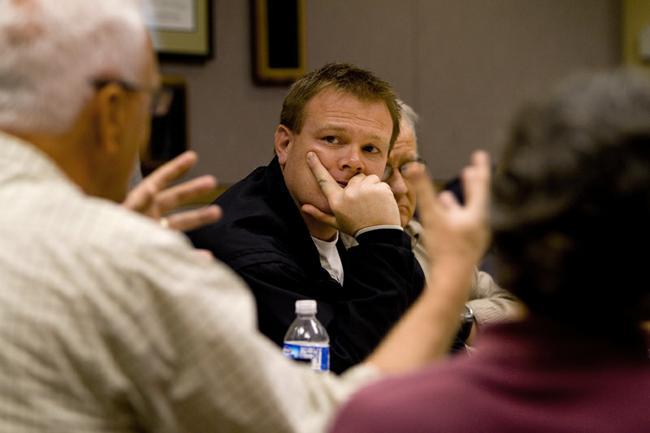
Faculty members weighed the option of letting students take upper level courses without taking prerequisites as part of Faculty Council’s general education review Thursday.
The review suggests allowing students to take upper level courses without having to take the prerequisites. Students currently cannot receive that credit until the prerequisite courses are completed.
“I feel very strongly against this,” said Nicole Monnier, director in Undergraduate Studies in Russian, regarding the possible change. “It’s like saying ‘Well, it fits in the schedule to take chemistry 3000 this semester, and I’ll take chemistry 101 in the spring.’ It makes no sense.”
Many members of Faculty Council agreed that removing this requirement would deviate from the predetermined curriculum. They said the problem was with the registration process.
Engineering professor Harry Tyrer said some students make it to their senior year avoiding prerequisite courses and receiving substandard grades. By systematically avoiding prerequisite courses, Tyrer said those students were at a severe disadvantage.
Faculty Council will be communicating with the registrar’s office and the general education review will be opened for discussion at the next Faculty Council meeting.
Also at the meeting, Faculty Council voted to create a standing committee on issues relating to the family obligations of students, faculty and staff. Endorsed by the Diversity Enhancement Committee, this committee will extend discussion on the issues addressed by the Family Friendly Initative Task Force created by Chancellor Brady Deaton.
According to a letter from the Diversity Enhancement Committee, the new committee will continue to address the family-related needs as they are identified. The term “family” is to be inclusive rather than exclusive and includes families of all types.
For the upcoming general faculty meeting, Faculty Council voted to endorse the grievance pilot to become permanent. The pilot program has been in place since 2008, and the topic has been debated among faculty who are concerned for their rights to file complaints against university administration.
The grievance process suggests that allegations should be discussed as much as possible through informal discussions before formal grievances are filed.
Cynthia Cotner, a representative from the Chancellor’s Persons with Disabilities Committee, spoke to Faculty Council about their work in trying to make MU a more welcoming place to people with disabilities.
The survey, done by the committee in 2009, highlighted the lapse in MU policies regarding its faculty, staff and students with disabilities. Cotner said 2 percent of MU students are registered with the Office of Disability Services. The U.S. Census Bureau estimates that 20 percent of Americans have some type of disability.
The survey reported that 28 percent of faculty and staff rated campus accessibility as poor, and 20 percent reported experiencing harassment because of their disability.
“What we’ve been talking about that in the committee is how we can improve that,” Cotner said in regards to the statistics. “How we can become more welcoming to people with disabilities.”